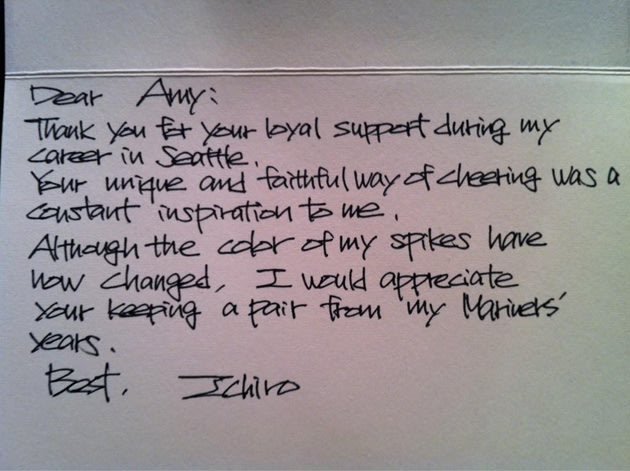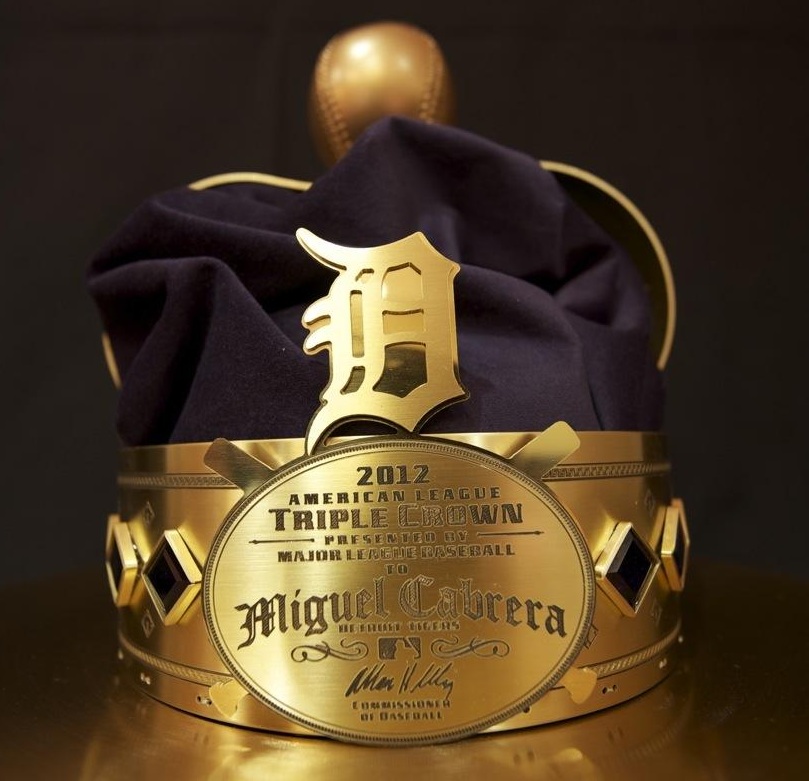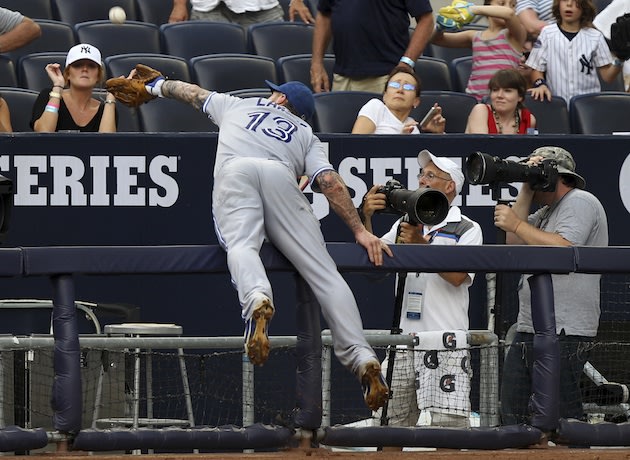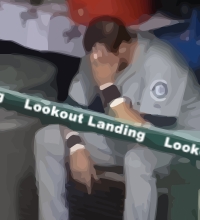1.
In the NHL's 2010-2011 season, Daniel Sedin - a player in the Western Conference - led the league with 104 points and won the Art Ross Trophy as the leading scorer. The Eastern Conference's Martin St. Louis scored 99 points, second-best in the NHL, and was awarded nothing. Corey Perry - another Western Conference player - led the league with 50 goals and was awarded the Maurice Richard Trophy as top goal-scorer. Martin St. Louis's teammate, Steven Stamkos, scored 45 to lead the Eastern Conference, but nobody noticed or cared.
2.
One of the oft-repeated arguments in favor of pitcher Jack Morris's election to the baseball Hall of Fame is that he led baseball in Pitcher Wins during the 1980s, with 162, and every other pitcher who led a particular decade in Pitcher Wins is in the Hall of Fame. Let's ignore, for the moment, that this is actually a pretty meaningless stat - that Pitcher Wins are heavily dependent on the quality of the pitcher's team, as well as dependent on having a lot of opportunities to start, and that we have much better stats available - and see whether that's actually true.
From 1977-1986 - a full decade - Ron Guidry led baseball with 163 Pitcher Wins. (Morris had 144 over the same time-frame.) Ron Guidry is
not in the Hall of Fame. From 1984-1993, Frank Viola and Roger Clemens tied for the most Pitcher Wins, again with 1963. Frank Viola is
also not in the Hall of Fame, and Clemens will be hard-pressed to shake the steroid-user label and qualify for the Hall, at least for the first few years.
So, even if I limit myself to the years where Morris was also active, it's pretty clear that the argument falls apart unless it's hilariously constrained. It's all about the easy and ready-made reference points, apparently.
3.
Rogers Hornsby was arguably one of the five or
ten greatest baseball players, ever. He has the second-highest career
batting average, ever. He had six seasons where he posted at least 10
Wins Above Replacement, equaling Barry Bonds and one fewer than Willie
Mays. (On the high-end, Babe Ruth had ten; Hank Aaron, though, had
none.)
In 1922, Hornsby won the first of his
Triple Crowns, meaning that he led the National League - all 8 teams - in
batting average (AVG), home runs (HR), and runs batted in (RBI). In
1925, he did it again, but did it even better. This time, he led
all of Major League Baseball in average, homers, and batted in.
4.
This season, Miguel Cabrera led the American League in that baseball traditionalist's favorite fetishistic triumvirate of stats: AVG, HR, RBI. (It's actually eminently reasonable to fetishize HR, because there's no better indicator of raw power. But AVG is demonstrably inferior to on-base percentage at demonstrating what it's supposed to demonstrate, and RBI is
almost useless - it's an opportunity stat, and not particularly reflective of ability.
Plenty of awful players have driven in 100 RBI, provided that they hit in the middle of the order and get to play every game.)
But the American League, like the Eastern Conference, is just a subset of half the teams in the whole of Major League Baseball. Cabrera led all of baseball in HR and RBI, but came second (or third, arguably) league-wide in AVG, behind the National League's Buster Posey. Actually,
he didn't even lead all Cabreras in AVG - the NL's Melky Cabrera was more than ten points higher, though he was one plate appearance short of "qualifying" for the batting title. (Although, that said, baseball has a rule that allows him to qualify by adding an extra "out" to his season line. Melky Cabrera requested that they
not that, and they complied, but we don't have to also indulge him.)
5.
Last season, Matt Kemp hit .324 with
39 HR and 126 RBI - a season very similar to the one that Miguel Cabrera
just put up this year. But Kemp didn't win the Triple Crown and didn't
win the MVP. (Although he probably should have. Even if we concede that
he and MVP Ryan Braun were nearly identical as hitters, Kemp is a
substantially better fielder at a much harder position.) Kemp led the
National league is HR and RBI, and finished third in AVG. He also led
all of baseball in RBI, was 3rd in HR, and 7th in AVG.
But let's be playful, for a moment, and try to imagine how Kemp could have won the Triple Crown.
Among National Leaguers, players on only the Brewers and Mets beat Kemp's batting average. Among American Leaguers, players on only the Yankees, Red Sox, Rangers, Tigers, and Blue Jays beat Kemp's AVG or HR. That means that Kemp's Triple Crown numbers were better than those posted by any player on the other 23 teams. Substitute the Brewers and Mets with any of the other 9 American League teams, and suddenly Matt Kemp has won a Triple Crown.
Actually, it's even easier than that. There are 14 teams in the AL and 16 in the NL. Miguel Cabrera had the best Triple Crown numbers among the players from 14 teams. Matt Kemp also had the best numbers among a group of 14 teams, but had the misfortune of playing in the larger League. If you drop the Brewers and Mets, you're left with 14 teams - the exact same number of teams and players that Cabrera was in competition with.
5.
Getting to the point: The MVPs of baseball's two Leagues will be announced on Thursday, and the American League's MVP Trout vs. Cabrera race is being figured as something much bigger than the two players themselves: advanced stats vs. traditional ones,
Wins Above Replacement (WAR) vs. the Triple Crown. But I'm going to suggest that this framing of the competition begs the question: because before we can ask whether it's more important to lead the league in WAR or in Triple Crown stats, we should probably confirm that Miguel Cabrera
actually won the Triple Crown.
Baseball fans are probably perplexed, at this point - because Cabrera
did win the Triple Crown, didn't he? Major League Baseball even created a trophy for it:
Obnoxious trophies aside, I'm gonna say it: Cabrera won
squat. If Stamkos wasn't the Eastern Conference's Richard Trophy winner, if Kemp didn't also win a Triple Crown, then it makes zero sense for Cabrera to be the American League's Triple Crown winner. It's based on an arbitrary assignment of 14 teams to one League and 16 to another. It's misleading, at least insofar as people routinely refer to the Triple Crown as "baseball's Triple Crown". It's not a
real Triple Crown.
Rogers Hornsby in 1925, leading all of baseball in the Triple Crown stats? That's a
real Triple Crown, just like Corey Perry's 50 goals earned him a
real Maurice Richard Trophy. Cabrera's impressive but nonetheless second-(or third-)best batting average? Second-best won Stamkos zero Richard trophies, which is precisely the number of Triple Crowns (and MVP awards) that Cabrera deserves.
6.
Additionally hilarious thought: I'm willing to bet that the same people who would give Cabrera the MVP over Trout because the former won the AL Triple Crown would see things differently if there was only
one MVP and not one for
each league - you know, just like
every other pro sports league. Because then we definitely wouldn't be talking about this Triple Crown thing - and without that traditionalist fetish symbol obscuring the view, Trout's superior numbers and performance are a
whole lot easier to see.
Here's the thing, and the whole point of how hilariously inappropriate and deceptive the Triple Crown award actually is: if a player is the MVP of his league, then he should be the MVP regardless of (ostensibly) irrelevant alternatives. If Cabrera > Trout, then that should hold true whether we're considering him for AL MVP or the MVP of all baseball. But that's not actually true. Because Cabrera's argument hinges so totally on his Triple Crown. If we consider all of baseball - AL and NL - including Buster Posey (or Melky Cabrera) and his higher batting average, then Cabrera loses the Triple Crown and suddenly Trout > Cabrera. That's absurd. And, yet, that's how baseball traditionalists think.




















